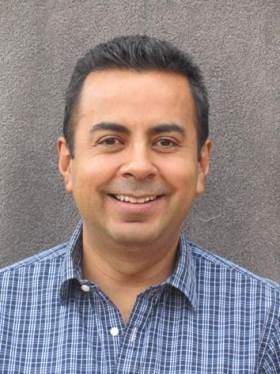The Society of Toxicology is pleased to announce the 2014 Global Senior Scholars, Gonzalo J. Diaz, National University of Colombia, Bogotá, Colombia, and Ebenezer O. Farombi, University of Ibadan, Ibadan, Nigeria. Applications for Hosts for each of these Scholars are due October 15, 2013, and the Education Committee will match each Scholar with a Host with similiar interests.
The primary goal of the Global Senior Scholar Exchange Program (GSSEP) is to increase toxicology capacity in developing countries by providing opportunities for senior scientists in those countries to develop professional relationships with SOT members in established toxicology programs. The award provides logistical and financial support for the Scholars to attend the SOT Annual Meeting and subsequently spend up to four weeks with one or more hosts from academic, government, or industry organization(s). The Host will in turn visit the Senior Scholar’s institution to engage in teaching, curriculum development, or other activities intended to build training and research capacity in toxicology. The program provides up to $15,000 for each pair, with up to $10,000 travel support for the Senior Scholar and up to $5,000 for the Host. The award cannot be used for equipment, laboratory supplies, or renovations.
About the Awardees
Gonzalo Diaz

Gonzalo Diaz is widely recognized in mycotoxins globally and plant toxins especially in the Andean region. Dr. Diaz is Professor of Veterinary Toxicology, Head of the Toxicology Laboratory, and Director of the Avian Nutrition and Toxicology Research Group at the National University of Colombia. This is the largest academic institution in Colombia, having close to 30,000 students and eight campuses across the country. The Toxicology Program at the National University of Colombia is hosted by the Department of Toxicology of the Medicine School with participation of professors from different colleges. He supervises students enrolled in both the Human Toxicology graduate program and the Veterinary College toxicology graduate program and teaches an undergraduate course on Veterinary Toxicology and two graduate courses (Advanced Toxicology and Toxicants of Natural Origin).
Specific areas for potential collaboration between Dr. Diaz and a host at an other institution include:
- Toxicants from natural origin with particular emphasis on toxins from plants and from fungi (mycotoxins). These toxins can affect both animals and humans and some of them are strictly regulated in human foods. This latter aspect requires the existence of laboratories that are highly competent in mycotoxin testing and toxicologists with experience in this field of toxicology as principal investigators of these laboratories.
- Toxicants produced during the processing of foods such as acrylamide. This is a topic that has not been investigated in Colombia and might be of great importance due to the large number of deep fried carbohydrate containing products that are normally eaten by the human
population in this country. Among these products are yuca (Manihot sculenta) chips, plantain chips, potato chips, corn chips, and others.
Ebenezer Farombi

Ebenezer Farombi is Professor of Biochemistry and Molecular Toxicology, Dean of the Faculty of Basic Medical Sciences (College of Medicine), and Director of Molecular Drug Metabolism and Toxicology Research at the University of Ibadan. This is the flagship of postgraduate education and training in Nigeria. The Department of Biochemistry is recognized for its pioneering research on environmental compounds such as aflatoxins, palmotoxins, N-nitroso compounds, perfluidone and aryl alkyl sulfonamide pesticides, glyphosates (a broad spectrum herbicide), naturally occurring coumarin compounds chalepin, imperatorin and oxypeucadanine isolated from medicinal plants, and polycyclic aromatic hydrocarbons.
Dr. Farombi seeks a host for the SOT Global Senior Scholar Exchange with research experience in chemical carcinogenesis of environmental compounds and oxidative stress mechanisms in chemical carcinogenesis. Goals include updating graduate training in molecular and biochemical toxicology, facilitating technology transfer, and increased exposure to toxicogenomics and molecular techniques relevant in probing the underlying mechanisms of action of toxic chemicals.
Ultimately he would like to increase the capacity of the program to address quality control/quality assurance and regulatory standards for drugs, chemicals, foods, drinks, and diets in the country, where there is a rising incidence in liver and kidney diseases. Many people use complementary and alternative medicines derived from medicinal plants, herbs, and concoctions prepared by native doctors. The dose and toxicological profiles of these medicines are not known as they have not been subjected to toxicity testing.
He believes that the Global Senior Scholar Exchange will impact the existing Toxicology programs in Nigeria and the West African Society of Toxicology, build capacity, and mentor young faculty members. Activities will facilitate continental networking in teaching and research in Toxicology, especially as Pan-African University was recently established and Ibadan University is hosting the Earth and the Life Sciences Program, with the curriculum for the MSc in Molecular and Biochemical Toxicology considered an exemplar.
Please see the GSSEP website or contact Betty Eidemiller for further information.